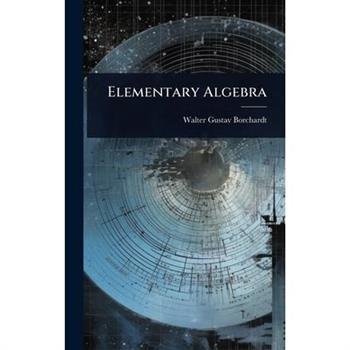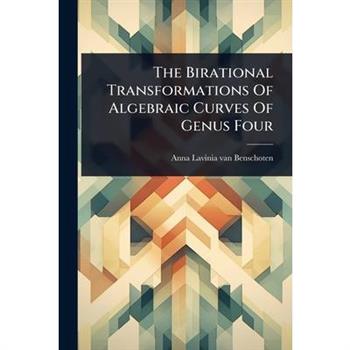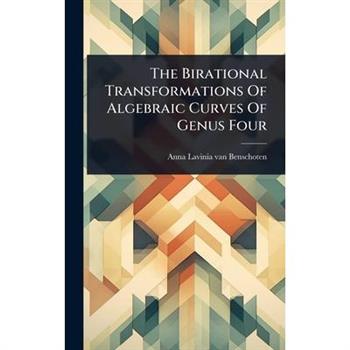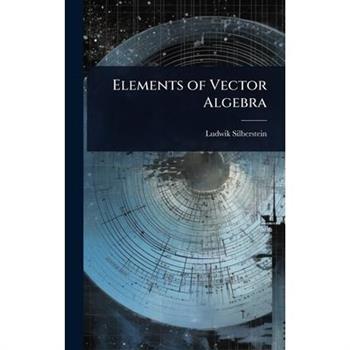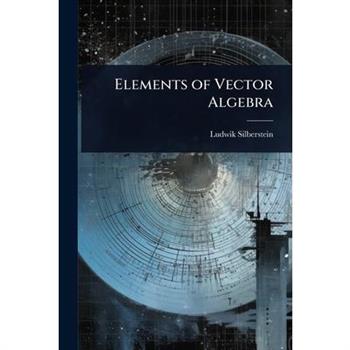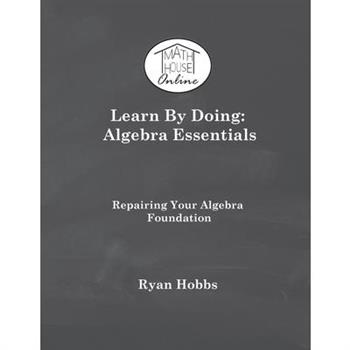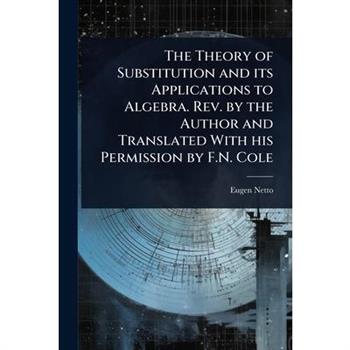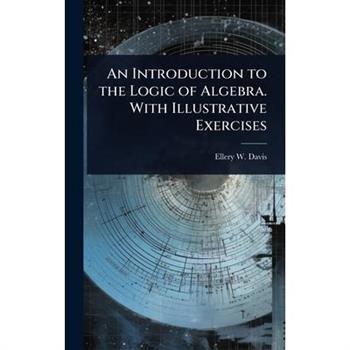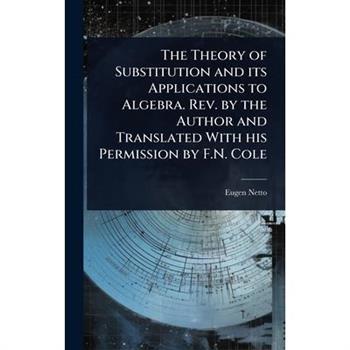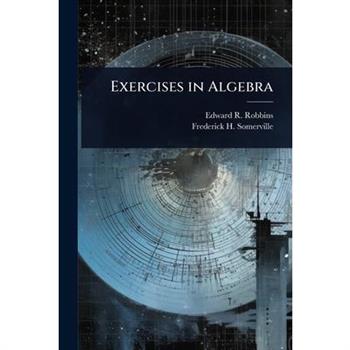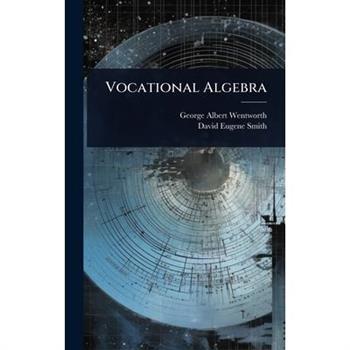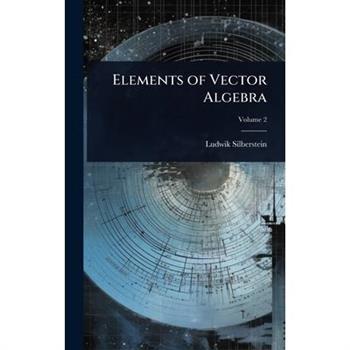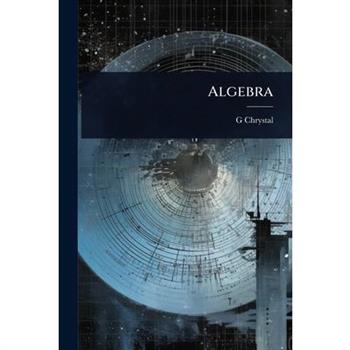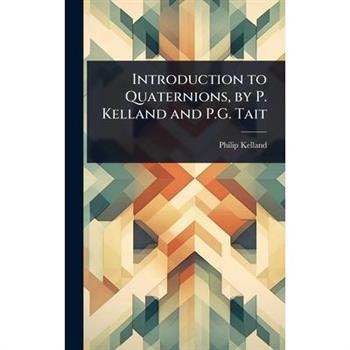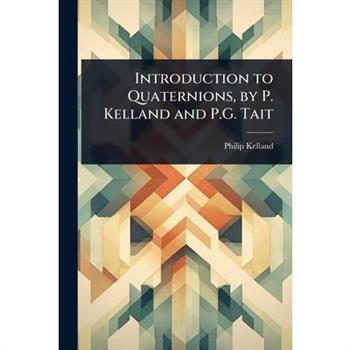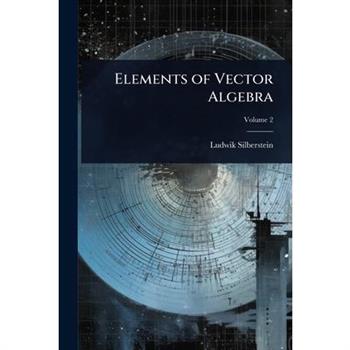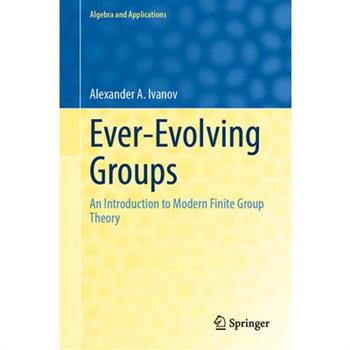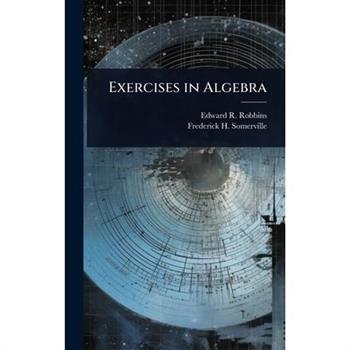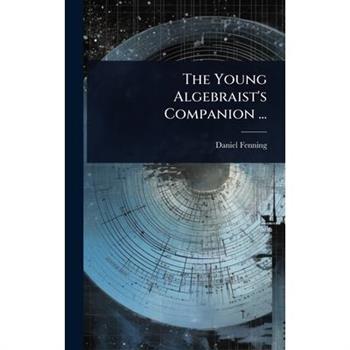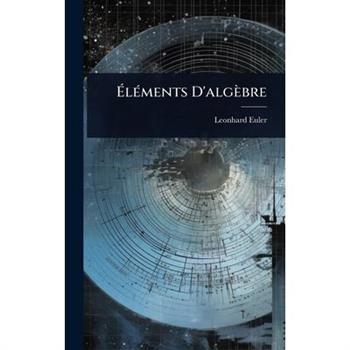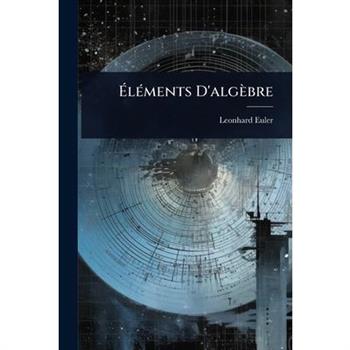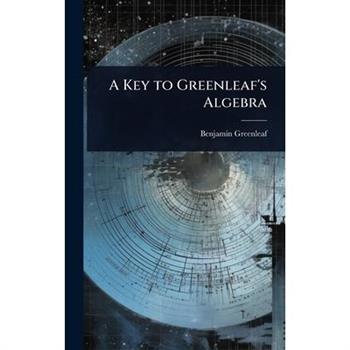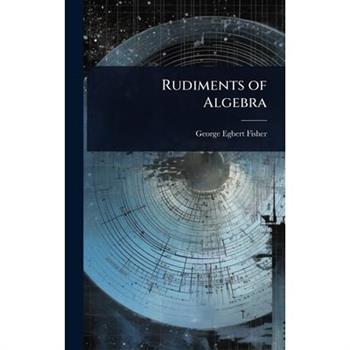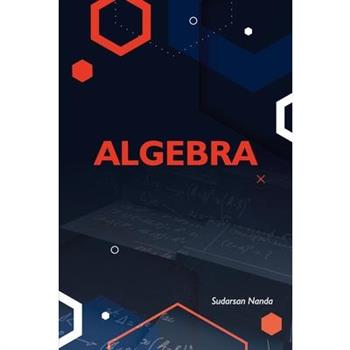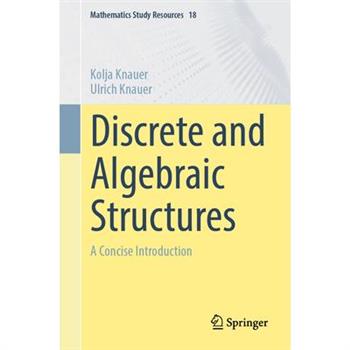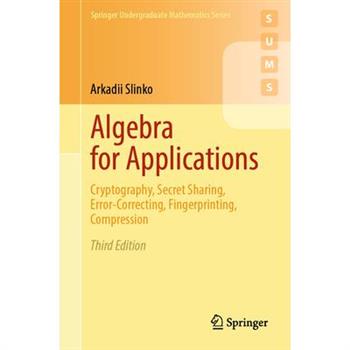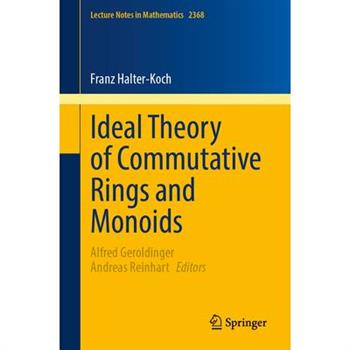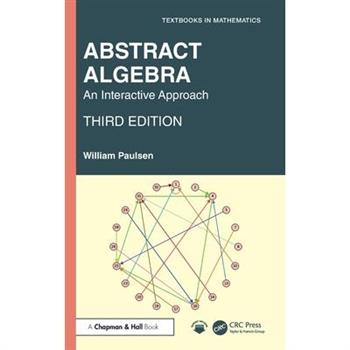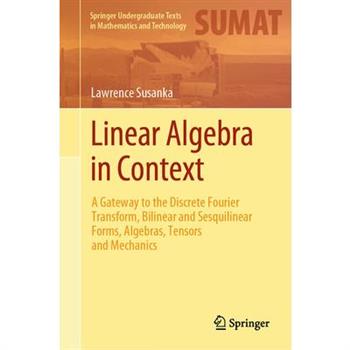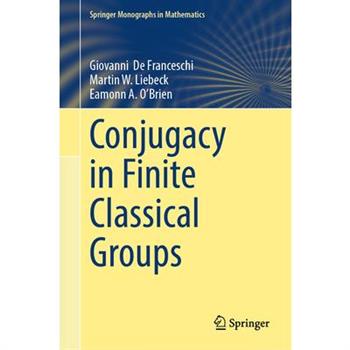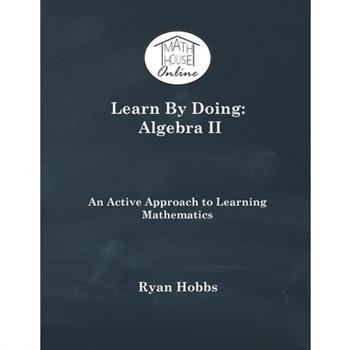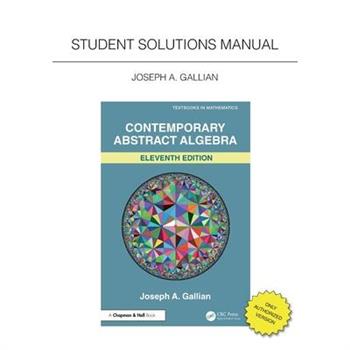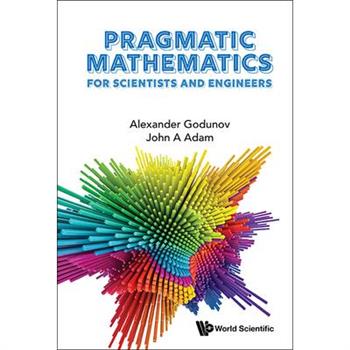The Birational Transformations Of Algebraic Curves Of Genus Four
"The Birational Transformations Of Algebraic Curves Of Genus Four" delves into the intricate world of algebraic curves, focusing specifically on those of genus four. This work explores the birational transformations that can be applied to these curves, offering insights into their geometric and algebraic properties. It is a valuable resource for researchers and students interested in algebraic geometry and number theory.This work has been selected by scholars as being culturally important, and is part of the knowledge base of civilization as we know it. This work was reproduced from the original artifact, and remains as true to the original work as possible. Therefore, you will see the original copyright references, library stamps (as most of these works have been housed in our most important libraries around the world), and other notations in the work.This work is in the public domain in the United States of America, and possibly other nations. Within the United States, you may freely copy and distribute this work, as no entity (individual or corporate) has a copyright on the body of the work.As a reproduction of a historical artifact, this work may contain missing or blurred pages, poor pictures, errant marks, etc. Scholars believe, and we concur, that this work is important enough to be preserved, reproduced, and made generally available to the public. We appreciate your support of the preservation process, and thank you for being an important part of keeping this knowledge alive and relevant.
The Birational Transformations Of Algebraic Curves Of Genus Four
"The Birational Transformations Of Algebraic Curves Of Genus Four" delves into the intricate world of algebraic curves, focusing specifically on those of genus four. This work explores the birational transformations that can be applied to these curves, offering insights into their geometric and algebraic properties. It is a valuable resource for researchers and students interested in algebraic geometry and number theory.This work has been selected by scholars as being culturally important, and is part of the knowledge base of civilization as we know it. This work was reproduced from the original artifact, and remains as true to the original work as possible. Therefore, you will see the original copyright references, library stamps (as most of these works have been housed in our most important libraries around the world), and other notations in the work.This work is in the public domain in the United States of America, and possibly other nations. Within the United States, you may freely copy and distribute this work, as no entity (individual or corporate) has a copyright on the body of the work.As a reproduction of a historical artifact, this work may contain missing or blurred pages, poor pictures, errant marks, etc. Scholars believe, and we concur, that this work is important enough to be preserved, reproduced, and made generally available to the public. We appreciate your support of the preservation process, and thank you for being an important part of keeping this knowledge alive and relevant.
Elements of Vector Algebra
"Elements of Vector Algebra" by Ludwik Silberstein offers a comprehensive exploration of vector algebra. Originally published in 1919, this book provides a detailed examination of vector concepts and operations. It covers fundamental principles and applications, making it a valuable resource for students and researchers in mathematics and physics. The text is designed to provide a clear and structured approach to understanding vector algebra.Silberstein's work is noted for its rigorous treatment of the subject matter, presenting a systematic development of vector methods. This book remains relevant for anyone seeking a solid foundation in the mathematical tools essential for advanced studies in various scientific disciplines.This work has been selected by scholars as being culturally important, and is part of the knowledge base of civilization as we know it. This work was reproduced from the original artifact, and remains as true to the original work as possible. Therefore, you will see the original copyright references, library stamps (as most of these works have been housed in our most important libraries around the world), and other notations in the work.This work is in the public domain in the United States of America, and possibly other nations. Within the United States, you may freely copy and distribute this work, as no entity (individual or corporate) has a copyright on the body of the work.As a reproduction of a historical artifact, this work may contain missing or blurred pages, poor pictures, errant marks, etc. Scholars believe, and we concur, that this work is important enough to be preserved, reproduced, and made generally available to the public. We appreciate your support of the preservation process, and thank you for being an important part of keeping this knowledge alive and relevant.
Elements of Vector Algebra
"Elements of Vector Algebra" by Ludwik Silberstein offers a comprehensive exploration of vector algebra. Originally published in 1919, this book provides a detailed examination of vector concepts and operations. It covers fundamental principles and applications, making it a valuable resource for students and researchers in mathematics and physics. The text is designed to provide a clear and structured approach to understanding vector algebra.Silberstein's work is noted for its rigorous treatment of the subject matter, presenting a systematic development of vector methods. This book remains relevant for anyone seeking a solid foundation in the mathematical tools essential for advanced studies in various scientific disciplines.This work has been selected by scholars as being culturally important, and is part of the knowledge base of civilization as we know it. This work was reproduced from the original artifact, and remains as true to the original work as possible. Therefore, you will see the original copyright references, library stamps (as most of these works have been housed in our most important libraries around the world), and other notations in the work.This work is in the public domain in the United States of America, and possibly other nations. Within the United States, you may freely copy and distribute this work, as no entity (individual or corporate) has a copyright on the body of the work.As a reproduction of a historical artifact, this work may contain missing or blurred pages, poor pictures, errant marks, etc. Scholars believe, and we concur, that this work is important enough to be preserved, reproduced, and made generally available to the public. We appreciate your support of the preservation process, and thank you for being an important part of keeping this knowledge alive and relevant.
Learn By Doing
Lots of students struggle with Algebra. And after a decade as a college lecturer, the reasons for the struggle vary. But one thing is always true-the foundation must be repaired. When students come into one of my college algebra courses and simply push ahead without doing the work of foundation repair, things rarely go well. Determination is admirable, but when the foundation is not sound, the new ideas are little more than gibberish. Attempting to memorize every type of problem simply doesn't work. There are too many ideas coming too quickly, and attempting to learn without understanding is a broken proposition. Fortunately, there is an answer. Stop and repair the foundation. In reality, it isn't nearly as difficult or time consuming as students fear. And that is where this workbook comes in. For many years, I've been working to find the most efficient and effective ways to communicate Algebra. For starters, lectures aren't the answer. Instead, I have created activities that help you through the concepts of Algebra one step at a time. In the classroom, if you got stuck, I would come along side and give you the help that you need to keep going. Here, if you are stuck, each activity includes a QR code which links to a video where I walk through the entire activity. Whether your Algebra foundation just has a few cracks or if it needs major reconstruction, Learn by Doing: Algebra Essentials is the place to begin. Stop trying to push through concepts that are meaningless. Instead, stop and fix what's broken, so that you can successfully begin building your way to higher mathematics.
The Theory of Substitution and its Applications to Algebra. Rev. by the Author and Translated With his Permission by F.N. Cole
"The Theory of Substitution and its Applications to Algebra" by Eugen Netto, translated by F.N. Cole, explores the fundamental principles of substitution within algebraic structures. Originally published in 1892, this work delves into the applications of substitution theory, providing a rigorous examination of its role in solving algebraic problems. Netto's exposition covers permutations, group theory, and their intricate relationships with algebraic equations. This edition, revised by the author, offers both historical context and mathematical depth, making it an invaluable resource for mathematicians, students, and anyone interested in the foundations of modern algebra. It serves as a key text for understanding the evolution of algebraic thought and the development of abstract algebra.This work has been selected by scholars as being culturally important, and is part of the knowledge base of civilization as we know it. This work was reproduced from the original artifact, and remains as true to the original work as possible. Therefore, you will see the original copyright references, library stamps (as most of these works have been housed in our most important libraries around the world), and other notations in the work.This work is in the public domain in the United States of America, and possibly other nations. Within the United States, you may freely copy and distribute this work, as no entity (individual or corporate) has a copyright on the body of the work.As a reproduction of a historical artifact, this work may contain missing or blurred pages, poor pictures, errant marks, etc. Scholars believe, and we concur, that this work is important enough to be preserved, reproduced, and made generally available to the public. We appreciate your support of the preservation process, and thank you for being an important part of keeping this knowledge alive and relevant.
An Introduction to the Logic of Algebra. With Illustrative Exercises
An Introduction to the Logic of Algebra by Ellery W. Davis, originally published in 1890, provides a comprehensive exploration of algebraic principles and their logical foundations. Designed as a textbook, this work aims to equip students with a solid understanding of algebra through illustrative exercises and clear explanations. Davis meticulously guides readers through essential concepts, emphasizing the importance of logical reasoning in mathematical problem-solving. This book serves not only as a valuable resource for students but also as a window into the mathematical pedagogy of the late nineteenth century. Its enduring value lies in its rigorous approach and its commitment to fostering a deep, conceptual understanding of algebra. Modern readers will appreciate Davis's methodical instruction and the historical context of mathematical education it provides.This work has been selected by scholars as being culturally important, and is part of the knowledge base of civilization as we know it. This work was reproduced from the original artifact, and remains as true to the original work as possible. Therefore, you will see the original copyright references, library stamps (as most of these works have been housed in our most important libraries around the world), and other notations in the work.This work is in the public domain in the United States of America, and possibly other nations. Within the United States, you may freely copy and distribute this work, as no entity (individual or corporate) has a copyright on the body of the work.As a reproduction of a historical artifact, this work may contain missing or blurred pages, poor pictures, errant marks, etc. Scholars believe, and we concur, that this work is important enough to be preserved, reproduced, and made generally available to the public. We appreciate your support of the preservation process, and thank you for being an important part of keeping this knowledge alive and relevant.
School Algebra, Book 1
"School Algebra, Book 1" is a comprehensive textbook designed for students beginning their study of algebra. Authored by David Eugene Smith and George Wentworth, this volume provides a structured and accessible approach to fundamental algebraic concepts. Originally published in 1913, this book reflects the pedagogical methods and curriculum standards of the early 20th century, offering a valuable glimpse into the history of mathematics education. Readers will find clear explanations, numerous examples, and a progressive series of exercises designed to build a solid foundation in algebra. While some terminology and approaches may differ from modern usage, the core principles remain timeless, making this book a useful resource for students, educators, and anyone interested in the historical development of mathematical instruction.This work has been selected by scholars as being culturally important, and is part of the knowledge base of civilization as we know it. This work was reproduced from the original artifact, and remains as true to the original work as possible. Therefore, you will see the original copyright references, library stamps (as most of these works have been housed in our most important libraries around the world), and other notations in the work.This work is in the public domain in the United States of America, and possibly other nations. Within the United States, you may freely copy and distribute this work, as no entity (individual or corporate) has a copyright on the body of the work.As a reproduction of a historical artifact, this work may contain missing or blurred pages, poor pictures, errant marks, etc. Scholars believe, and we concur, that this work is important enough to be preserved, reproduced, and made generally available to the public. We appreciate your support of the preservation process, and thank you for being an important part of keeping this knowledge alive and relevant.
The Theory of Substitution and its Applications to Algebra. Rev. by the Author and Translated With his Permission by F.N. Cole
"The Theory of Substitution and its Applications to Algebra" by Eugen Netto, translated by F.N. Cole, explores the fundamental principles of substitution within algebraic structures. Originally published in 1892, this work delves into the applications of substitution theory, providing a rigorous examination of its role in solving algebraic problems. Netto's exposition covers permutations, group theory, and their intricate relationships with algebraic equations. This edition, revised by the author, offers both historical context and mathematical depth, making it an invaluable resource for mathematicians, students, and anyone interested in the foundations of modern algebra. It serves as a key text for understanding the evolution of algebraic thought and the development of abstract algebra.This work has been selected by scholars as being culturally important, and is part of the knowledge base of civilization as we know it. This work was reproduced from the original artifact, and remains as true to the original work as possible. Therefore, you will see the original copyright references, library stamps (as most of these works have been housed in our most important libraries around the world), and other notations in the work.This work is in the public domain in the United States of America, and possibly other nations. Within the United States, you may freely copy and distribute this work, as no entity (individual or corporate) has a copyright on the body of the work.As a reproduction of a historical artifact, this work may contain missing or blurred pages, poor pictures, errant marks, etc. Scholars believe, and we concur, that this work is important enough to be preserved, reproduced, and made generally available to the public. We appreciate your support of the preservation process, and thank you for being an important part of keeping this knowledge alive and relevant.
Exercises in Algebra
"Exercises in Algebra" is a comprehensive collection of algebraic problems and exercises designed to reinforce fundamental concepts and enhance problem-solving skills. Intended for students and educators alike, this volume provides a structured approach to mastering algebra through practice. Authored by Edward R. Robbins and Frederick H. Somerville, this resource offers a wealth of material suitable for classroom use or self-study. The exercises cover a wide range of topics, ensuring a thorough understanding of algebraic principles. This book serves as an invaluable tool for anyone seeking to build a solid foundation in algebra.This work has been selected by scholars as being culturally important, and is part of the knowledge base of civilization as we know it. This work was reproduced from the original artifact, and remains as true to the original work as possible. Therefore, you will see the original copyright references, library stamps (as most of these works have been housed in our most important libraries around the world), and other notations in the work.This work is in the public domain in the United States of America, and possibly other nations. Within the United States, you may freely copy and distribute this work, as no entity (individual or corporate) has a copyright on the body of the work.As a reproduction of a historical artifact, this work may contain missing or blurred pages, poor pictures, errant marks, etc. Scholars believe, and we concur, that this work is important enough to be preserved, reproduced, and made generally available to the public. We appreciate your support of the preservation process, and thank you for being an important part of keeping this knowledge alive and relevant.
Vocational Algebra
"Vocational Algebra," by George Albert Wentworth and David Eugene Smith, presents a practical approach to algebra for students preparing for various trades and occupations. Published in 1911, this textbook emphasizes the application of algebraic principles to real-world problems encountered in vocational settings. The book covers fundamental algebraic concepts, including equations, formulas, and problem-solving techniques, with a focus on their relevance to fields such as carpentry, metalworking, and engineering. Numerous examples and exercises are provided to reinforce understanding and develop practical skills. "Vocational Algebra" aims to bridge the gap between theoretical mathematics and its concrete applications, making it an invaluable resource for students seeking to apply their knowledge in vocational careers. Its enduring value lies in its ability to make algebra accessible and relevant to students pursuing practical trades.This work has been selected by scholars as being culturally important, and is part of the knowledge base of civilization as we know it. This work was reproduced from the original artifact, and remains as true to the original work as possible. Therefore, you will see the original copyright references, library stamps (as most of these works have been housed in our most important libraries around the world), and other notations in the work.This work is in the public domain in the United States of America, and possibly other nations. Within the United States, you may freely copy and distribute this work, as no entity (individual or corporate) has a copyright on the body of the work.As a reproduction of a historical artifact, this work may contain missing or blurred pages, poor pictures, errant marks, etc. Scholars believe, and we concur, that this work is important enough to be preserved, reproduced, and made generally available to the public. We appreciate your support of the preservation process, and thank you for being an important part of keeping this knowledge alive and relevant.
The Young Algebraist’s Companion ...
"The Young Algebraist's Companion" by Daniel Fenning, in a new edition with a supplement, offers a comprehensive guide to algebra as it was taught in the late 18th and early 19th centuries. This book serves as a window into the mathematical education of the period, providing insights into the methods and approaches used to teach algebra to young learners. It would be a valuable resource for anyone interested in the history of mathematics education.This work has been selected by scholars as being culturally important, and is part of the knowledge base of civilization as we know it. This work was reproduced from the original artifact, and remains as true to the original work as possible. Therefore, you will see the original copyright references, library stamps (as most of these works have been housed in our most important libraries around the world), and other notations in the work.This work is in the public domain in the United States of America, and possibly other nations. Within the United States, you may freely copy and distribute this work, as no entity (individual or corporate) has a copyright on the body of the work.As a reproduction of a historical artifact, this work may contain missing or blurred pages, poor pictures, errant marks, etc. Scholars believe, and we concur, that this work is important enough to be preserved, reproduced, and made generally available to the public. We appreciate your support of the preservation process, and thank you for being an important part of keeping this knowledge alive and relevant.
Elements of Vector Algebra
Elements of Vector Algebra, Volume 2, by Ludwik Silberstein, presents a comprehensive exploration of vector algebra. Originally published in 1919, this volume delves into the fundamental principles and applications of vectors. This book offers a valuable resource for students, physicists, and mathematicians seeking a deeper understanding of vector algebra's role in scientific and theoretical contexts. Silberstein's work remains relevant for those studying the foundations of mathematical physics and engineering.This work has been selected by scholars as being culturally important, and is part of the knowledge base of civilization as we know it. This work was reproduced from the original artifact, and remains as true to the original work as possible. Therefore, you will see the original copyright references, library stamps (as most of these works have been housed in our most important libraries around the world), and other notations in the work.This work is in the public domain in the United States of America, and possibly other nations. Within the United States, you may freely copy and distribute this work, as no entity (individual or corporate) has a copyright on the body of the work.As a reproduction of a historical artifact, this work may contain missing or blurred pages, poor pictures, errant marks, etc. Scholars believe, and we concur, that this work is important enough to be preserved, reproduced, and made generally available to the public. We appreciate your support of the preservation process, and thank you for being an important part of keeping this knowledge alive and relevant.
Algebra
"Algebra: An Elementary Text-book" by G. Chrystal is a comprehensive resource designed for students in higher secondary classes and colleges. This book, Volume pt. 1, provides a thorough grounding in algebra, covering essential concepts and techniques. Intended for both classroom use and self-study, it includes numerous examples and exercises to reinforce learning. Chrystal's clear and systematic approach makes complex topics accessible to students, fostering a strong foundation in mathematical reasoning. This classic text remains relevant for anyone seeking a deeper understanding of algebra's fundamental principles.This work has been selected by scholars as being culturally important, and is part of the knowledge base of civilization as we know it. This work was reproduced from the original artifact, and remains as true to the original work as possible. Therefore, you will see the original copyright references, library stamps (as most of these works have been housed in our most important libraries around the world), and other notations in the work.This work is in the public domain in the United States of America, and possibly other nations. Within the United States, you may freely copy and distribute this work, as no entity (individual or corporate) has a copyright on the body of the work.As a reproduction of a historical artifact, this work may contain missing or blurred pages, poor pictures, errant marks, etc. Scholars believe, and we concur, that this work is important enough to be preserved, reproduced, and made generally available to the public. We appreciate your support of the preservation process, and thank you for being an important part of keeping this knowledge alive and relevant.
Introduction to Quaternions, by P. Kelland and P.G. Tait
"Introduction to Quaternions" by Philip Kelland and Peter Guthrie Tait offers a comprehensive exploration of quaternion algebra, a mathematical system that extends complex numbers. This historical text delves into the theory and application of quaternions, providing a foundation for understanding their role in various fields of physics and mathematics. The book covers fundamental concepts, algebraic properties, and practical uses of quaternions, with a focus on their application to three-dimensional space and mechanics. Readers will gain insights into the relationship between quaternions and vector analysis, as well as their significance in Hamiltonian mechanics and other areas of theoretical physics. This edition remains valuable for mathematicians, physicists, and students interested in the historical development of mathematical tools and their enduring relevance in modern science.This work has been selected by scholars as being culturally important, and is part of the knowledge base of civilization as we know it. This work was reproduced from the original artifact, and remains as true to the original work as possible. Therefore, you will see the original copyright references, library stamps (as most of these works have been housed in our most important libraries around the world), and other notations in the work.This work is in the public domain in the United States of America, and possibly other nations. Within the United States, you may freely copy and distribute this work, as no entity (individual or corporate) has a copyright on the body of the work.As a reproduction of a historical artifact, this work may contain missing or blurred pages, poor pictures, errant marks, etc. Scholars believe, and we concur, that this work is important enough to be preserved, reproduced, and made generally available to the public. We appreciate your support of the preservation process, and thank you for being an important part of keeping this knowledge alive and relevant.
Introduction to Quaternions, by P. Kelland and P.G. Tait
"Introduction to Quaternions" by Philip Kelland and Peter Guthrie Tait offers a comprehensive exploration of quaternion algebra, a mathematical system that extends complex numbers. This historical text delves into the theory and application of quaternions, providing a foundation for understanding their role in various fields of physics and mathematics. The book covers fundamental concepts, algebraic properties, and practical uses of quaternions, with a focus on their application to three-dimensional space and mechanics. Readers will gain insights into the relationship between quaternions and vector analysis, as well as their significance in Hamiltonian mechanics and other areas of theoretical physics. This edition remains valuable for mathematicians, physicists, and students interested in the historical development of mathematical tools and their enduring relevance in modern science.This work has been selected by scholars as being culturally important, and is part of the knowledge base of civilization as we know it. This work was reproduced from the original artifact, and remains as true to the original work as possible. Therefore, you will see the original copyright references, library stamps (as most of these works have been housed in our most important libraries around the world), and other notations in the work.This work is in the public domain in the United States of America, and possibly other nations. Within the United States, you may freely copy and distribute this work, as no entity (individual or corporate) has a copyright on the body of the work.As a reproduction of a historical artifact, this work may contain missing or blurred pages, poor pictures, errant marks, etc. Scholars believe, and we concur, that this work is important enough to be preserved, reproduced, and made generally available to the public. We appreciate your support of the preservation process, and thank you for being an important part of keeping this knowledge alive and relevant.
Elements of Vector Algebra
Elements of Vector Algebra, Volume 2, by Ludwik Silberstein, presents a comprehensive exploration of vector algebra. Originally published in 1919, this volume delves into the fundamental principles and applications of vectors. This book offers a valuable resource for students, physicists, and mathematicians seeking a deeper understanding of vector algebra's role in scientific and theoretical contexts. Silberstein's work remains relevant for those studying the foundations of mathematical physics and engineering.This work has been selected by scholars as being culturally important, and is part of the knowledge base of civilization as we know it. This work was reproduced from the original artifact, and remains as true to the original work as possible. Therefore, you will see the original copyright references, library stamps (as most of these works have been housed in our most important libraries around the world), and other notations in the work.This work is in the public domain in the United States of America, and possibly other nations. Within the United States, you may freely copy and distribute this work, as no entity (individual or corporate) has a copyright on the body of the work.As a reproduction of a historical artifact, this work may contain missing or blurred pages, poor pictures, errant marks, etc. Scholars believe, and we concur, that this work is important enough to be preserved, reproduced, and made generally available to the public. We appreciate your support of the preservation process, and thank you for being an important part of keeping this knowledge alive and relevant.
Exercises in Algebra
"Exercises in Algebra" is a comprehensive collection of algebraic problems and exercises designed to reinforce fundamental concepts and enhance problem-solving skills. Intended for students and educators alike, this volume provides a structured approach to mastering algebra through practice. Authored by Edward R. Robbins and Frederick H. Somerville, this resource offers a wealth of material suitable for classroom use or self-study. The exercises cover a wide range of topics, ensuring a thorough understanding of algebraic principles. This book serves as an invaluable tool for anyone seeking to build a solid foundation in algebra.This work has been selected by scholars as being culturally important, and is part of the knowledge base of civilization as we know it. This work was reproduced from the original artifact, and remains as true to the original work as possible. Therefore, you will see the original copyright references, library stamps (as most of these works have been housed in our most important libraries around the world), and other notations in the work.This work is in the public domain in the United States of America, and possibly other nations. Within the United States, you may freely copy and distribute this work, as no entity (individual or corporate) has a copyright on the body of the work.As a reproduction of a historical artifact, this work may contain missing or blurred pages, poor pictures, errant marks, etc. Scholars believe, and we concur, that this work is important enough to be preserved, reproduced, and made generally available to the public. We appreciate your support of the preservation process, and thank you for being an important part of keeping this knowledge alive and relevant.
The Young Algebraist’s Companion ...
"The Young Algebraist's Companion" by Daniel Fenning, in a new edition with a supplement, offers a comprehensive guide to algebra as it was taught in the late 18th and early 19th centuries. This book serves as a window into the mathematical education of the period, providing insights into the methods and approaches used to teach algebra to young learners. It would be a valuable resource for anyone interested in the history of mathematics education.This work has been selected by scholars as being culturally important, and is part of the knowledge base of civilization as we know it. This work was reproduced from the original artifact, and remains as true to the original work as possible. Therefore, you will see the original copyright references, library stamps (as most of these works have been housed in our most important libraries around the world), and other notations in the work.This work is in the public domain in the United States of America, and possibly other nations. Within the United States, you may freely copy and distribute this work, as no entity (individual or corporate) has a copyright on the body of the work.As a reproduction of a historical artifact, this work may contain missing or blurred pages, poor pictures, errant marks, etc. Scholars believe, and we concur, that this work is important enough to be preserved, reproduced, and made generally available to the public. We appreciate your support of the preservation process, and thank you for being an important part of keeping this knowledge alive and relevant.
?‰l?(c)ments D’alg癡bre
"?‰l?(c)ments D'alg癡bre" by Leonhard Euler is a foundational text in the field of algebra. This work systematically introduces algebraic concepts, principles, and problem-solving techniques. Euler's clear and methodical approach makes this book valuable for students and enthusiasts of mathematics. Exploring fundamental equations and algebraic manipulations, the book provides a comprehensive understanding of the core concepts of algebra. With its historical significance and timeless relevance, "?‰l?(c)ments D'alg癡bre" remains an important resource for anyone seeking a solid grounding in algebraic theory.This work has been selected by scholars as being culturally important, and is part of the knowledge base of civilization as we know it. This work was reproduced from the original artifact, and remains as true to the original work as possible. Therefore, you will see the original copyright references, library stamps (as most of these works have been housed in our most important libraries around the world), and other notations in the work.This work is in the public domain in the United States of America, and possibly other nations. Within the United States, you may freely copy and distribute this work, as no entity (individual or corporate) has a copyright on the body of the work.As a reproduction of a historical artifact, this work may contain missing or blurred pages, poor pictures, errant marks, etc. Scholars believe, and we concur, that this work is important enough to be preserved, reproduced, and made generally available to the public. We appreciate your support of the preservation process, and thank you for being an important part of keeping this knowledge alive and relevant.
?‰l?(c)ments D’alg癡bre
"?‰l?(c)ments D'alg癡bre" by Leonhard Euler is a foundational text in the field of algebra. This work systematically introduces algebraic concepts, principles, and problem-solving techniques. Euler's clear and methodical approach makes this book valuable for students and enthusiasts of mathematics. Exploring fundamental equations and algebraic manipulations, the book provides a comprehensive understanding of the core concepts of algebra. With its historical significance and timeless relevance, "?‰l?(c)ments D'alg癡bre" remains an important resource for anyone seeking a solid grounding in algebraic theory.This work has been selected by scholars as being culturally important, and is part of the knowledge base of civilization as we know it. This work was reproduced from the original artifact, and remains as true to the original work as possible. Therefore, you will see the original copyright references, library stamps (as most of these works have been housed in our most important libraries around the world), and other notations in the work.This work is in the public domain in the United States of America, and possibly other nations. Within the United States, you may freely copy and distribute this work, as no entity (individual or corporate) has a copyright on the body of the work.As a reproduction of a historical artifact, this work may contain missing or blurred pages, poor pictures, errant marks, etc. Scholars believe, and we concur, that this work is important enough to be preserved, reproduced, and made generally available to the public. We appreciate your support of the preservation process, and thank you for being an important part of keeping this knowledge alive and relevant.
Arithmetic And Algebra In Their Principles And Application
"Arithmetic and Algebra In Their Principles and Application" is a comprehensive guide designed to elucidate the fundamental principles of arithmetic and algebra. Intended for students and educators alike, this book offers a systematic approach to understanding and applying mathematical concepts. Starting with basic arithmetic operations and progressing to more complex algebraic equations, the text provides clear explanations and numerous examples to reinforce learning.This book emphasizes the importance of a strong foundation in mathematics and aims to develop problem-solving skills. Whether used as a textbook or for self-study, "Arithmetic and Algebra" serves as an invaluable resource for mastering essential mathematical techniques.This work has been selected by scholars as being culturally important, and is part of the knowledge base of civilization as we know it. This work was reproduced from the original artifact, and remains as true to the original work as possible. Therefore, you will see the original copyright references, library stamps (as most of these works have been housed in our most important libraries around the world), and other notations in the work.This work is in the public domain in the United States of America, and possibly other nations. Within the United States, you may freely copy and distribute this work, as no entity (individual or corporate) has a copyright on the body of the work.As a reproduction of a historical artifact, this work may contain missing or blurred pages, poor pictures, errant marks, etc. Scholars believe, and we concur, that this work is important enough to be preserved, reproduced, and made generally available to the public. We appreciate your support of the preservation process, and thank you for being an important part of keeping this knowledge alive and relevant.
Advanced Linear Algebra
The second edition of this engaging textbook for advanced undergraduate students and beginning graduates covers all the core subjects in linear algebra. It has a unique emphasis on integrating ideas from analysis, in addition to pure algebra, and features a balance of abstraction, practicality, and contemporary applications. Four chapters examine some of the most important of these applications, including quantum mechanics, machine learning, data science, and quantum information. The material is supplemented by a rich collection of exercises designed for students from diverse backgrounds, including a wealth of newly added ones in this edition. Selected solutions are provided at the back of the book for use in self-study, and full solutions are available online to instructors.
A Key to Greenleaf’s Algebra
"A Key to Greenleaf's Algebra" is a comprehensive companion volume designed to accompany Benjamin Greenleaf's algebra textbook. Published in 1858, this key provides detailed solutions and explanations to the exercises and problems presented in the main text. It serves as an invaluable resource for students seeking to deepen their understanding of algebraic principles and for educators looking for effective teaching aids. This key offers step-by-step guidance, enabling learners to master fundamental concepts and build a solid foundation in algebra. With its clear and concise approach, "A Key to Greenleaf's Algebra" remains a relevant and useful tool for anyone studying or teaching algebra.This work has been selected by scholars as being culturally important, and is part of the knowledge base of civilization as we know it. This work was reproduced from the original artifact, and remains as true to the original work as possible. Therefore, you will see the original copyright references, library stamps (as most of these works have been housed in our most important libraries around the world), and other notations in the work.This work is in the public domain in the United States of America, and possibly other nations. Within the United States, you may freely copy and distribute this work, as no entity (individual or corporate) has a copyright on the body of the work.As a reproduction of a historical artifact, this work may contain missing or blurred pages, poor pictures, errant marks, etc. Scholars believe, and we concur, that this work is important enough to be preserved, reproduced, and made generally available to the public. We appreciate your support of the preservation process, and thank you for being an important part of keeping this knowledge alive and relevant.
Unbounded Operator Algebras and Representation Theory
No detailed description available for "Unbounded Operator Algebras and Representation Theory".
A Key to Greenleaf’s Algebra
"A Key to Greenleaf's Algebra" is a comprehensive companion volume designed to accompany Benjamin Greenleaf's algebra textbook. Published in 1858, this key provides detailed solutions and explanations to the exercises and problems presented in the main text. It serves as an invaluable resource for students seeking to deepen their understanding of algebraic principles and for educators looking for effective teaching aids. This key offers step-by-step guidance, enabling learners to master fundamental concepts and build a solid foundation in algebra. With its clear and concise approach, "A Key to Greenleaf's Algebra" remains a relevant and useful tool for anyone studying or teaching algebra.This work has been selected by scholars as being culturally important, and is part of the knowledge base of civilization as we know it. This work was reproduced from the original artifact, and remains as true to the original work as possible. Therefore, you will see the original copyright references, library stamps (as most of these works have been housed in our most important libraries around the world), and other notations in the work.This work is in the public domain in the United States of America, and possibly other nations. Within the United States, you may freely copy and distribute this work, as no entity (individual or corporate) has a copyright on the body of the work.As a reproduction of a historical artifact, this work may contain missing or blurred pages, poor pictures, errant marks, etc. Scholars believe, and we concur, that this work is important enough to be preserved, reproduced, and made generally available to the public. We appreciate your support of the preservation process, and thank you for being an important part of keeping this knowledge alive and relevant.
Rudiments of Algebra
"Rudiments of Algebra" by George Egbert Fisher is a comprehensive exploration of algebraic principles designed for students and educators alike. This meticulously crafted textbook, originally published around 1900, provides a thorough grounding in the fundamental concepts of algebra. Fisher's approach emphasizes clarity and precision, making complex topics accessible to learners of all levels. The book covers a wide range of subjects, from basic equations to more advanced topics, offering numerous examples and exercises to reinforce understanding. Its enduring value lies in its systematic presentation and the timeless relevance of its content. "Rudiments of Algebra" remains an invaluable resource for anyone seeking a solid foundation in algebraic theory and application, showcasing the educational standards and mathematical rigor of its time.This work has been selected by scholars as being culturally important, and is part of the knowledge base of civilization as we know it. This work was reproduced from the original artifact, and remains as true to the original work as possible. Therefore, you will see the original copyright references, library stamps (as most of these works have been housed in our most important libraries around the world), and other notations in the work.This work is in the public domain in the United States of America, and possibly other nations. Within the United States, you may freely copy and distribute this work, as no entity (individual or corporate) has a copyright on the body of the work.As a reproduction of a historical artifact, this work may contain missing or blurred pages, poor pictures, errant marks, etc. Scholars believe, and we concur, that this work is important enough to be preserved, reproduced, and made generally available to the public. We appreciate your support of the preservation process, and thank you for being an important part of keeping this knowledge alive and relevant.
Discrete and Algebraic Structures
This textbook presents the topics typically covered in a standard course on discrete structures. It is aimed at students of computer science and mathematics (teaching degree and Bachelor's/Master's) and is designed to accompany lectures, for self-study, and for exam preparation. Through explanatory introductions to definitions, numerous examples, counterexamples, diagrams, cross-references, and outlooks, the authors manage to present the wide range of topics concisely and comprehensibly. Numerous exercises facilitate the deepening of the material. Due to its compact presentation of all important discrete and algebraic structures and its extensive index, the book also serves as a reference for mathematicians, computer scientists, and natural scientists. Contents: From propositional and predicate logic to sets and combinatorics, numbers, relations and mappings, graphs, to the rich spectrum of algebraic structures, and a brief introduction to category theory. Additional chapters include rings and modules as well as matroids. This book is a translation of the second German edition. The translation was done with the help of artificial intelligence. A subsequent human revision was done primarily in terms of content, so the book may read stylistically differently from a conventional translation.
Ideal Theory of Commutative Rings and Monoids
This book offers a concise treatment of multiplicative ideal theory in the language of multiplicative monoids. It presents a systematic development of the theory of weak ideal systems and weak module systems on arbitrary commutative monoids. Examples of monoids that are investigated include, but are not limited to, Mori monoids, Laskerian monoids, Pr羹fer monoids and Krull monoids. An in-depth study of various constructions from ring theory is also provided, with an emphasis on polynomial rings, Kronecker function rings and Nagata rings. The target audience is graduate students and researchers in ring and semigroup theory.
Your First Calculus Journey
Your First Calculus Journey is a beginner-friendly guide that breaks down the fundamental concepts of calculus into simple, relatable explanations. Designed for those who are new to the concepts of calculus, this book aims to make complex mathematical ideas easy to grasp by using real-world examples and step-by-step explanations. Readers will explore essential topics such as functions, graphs, limits, derivatives, and integral. From understanding how a bike's speed relates to derivatives to visualizing integrals as filling a swimming pool, each chapter builds a strong foundation for deeper mathematical concepts. With clear explanations, coherent examples, and engaging visuals, Your First Calculus Journey is the perfect starting point for anyone to grasp the calculus concepts. Whether you're preparing for an upcoming class or simply curious about how calculus shapes the world, this book will guide you every step of the way.
Abstract Algebra
Abstract Algebra: An Interactive Approach, Third Edition is a new concept in learning modern algebra. Although all the expected topics are covered thoroughly and in the most popular order, the text offers much flexibility. Perhaps more significantly, the book gives professors and students the option of including technology in their courses. Each chapter in the textbook has a corresponding interactive Mathematica notebook and an interactive SageMath workbook that can be used in either the classroom or outside the classroom. Students will be able to visualize the important abstract concepts, such as groups and rings (by displaying multiplication tables), homomorphisms (by showing a line graph between two groups), and permutations. This, in turn, allows the students to learn these difficult concepts much more quickly and obtain a firmer grasp than with a traditional textbook. Thus, the colorful diagrams produced by Mathematica give added value to the students. Teachers can run the Mathematica or SageMath notebooks in the classroom in order to have their students visualize the dynamics of groups and rings. Students have the option of running the notebooks at home, and experiment with different groups or rings. Some of the exercises require technology, but most are of the standard type with various difficulty levels.The third edition is meant to be used in an undergraduate, single-semester course, reducing the breadth of coverage, size, and cost of the previous editions. Additional changes include: Binary operators are now in an independent section. The extended Euclidean algorithm is included. Many more homework problems are added to some sections. Mathematical induction is moved to Section 1.2. Despite the emphasis on additional software, the text is not short on rigor. All of the classical proofs are included, although some of the harder proofs can be shortened by using technology.
Conjugacy in Finite Classical Groups
This book provides a comprehensive coverage of the theory of conjugacy in finite classical groups. Given such a classical group G, the three fundamental problems considered are the following: to list a representative for each conjugacy class of G; to describe the centralizer of each representative, by giving its group structure and a generating set; and to solve the conjugacy problem in G--namely, given two elements of G, establish whether they are conjugate, and if so, find a conjugating element. The book presents comprehensive theoretical solutions to all three problems, and uses these solutions to formulate practical algorithms. In parallel to the theoretical work, implementations of these algorithms have been developed in Magma. These form a critical component of various general algorithms in computational group theory--for example, computing character tables and solving conjugacy problems in arbitrary finite groups.
Student Solutions Manual for Gallian's Contemporary Abstract Algebra
Redesigned for the 11th edition of Contemporary Abstract Algebra, Student Solutions Manual, written by the author, has comprehensive solutions for all odd-numbered exercises and a large number of even-numbered exercises. This Manual also offers many alternative solutions to those appearing in the text. These will provide the student with a better understanding of the material. This is the only available student solutions manual prepared by the author of Contemporary Abstract Algebra, Eleventh Edition and the only official one. It is designed to supplement the text and the author's original approach to instruction.
Pragmatic Mathematics for Scientists and Engineers
This is a textbook on basic to intermediate mathematics for undergraduate students majoring in the physical sciences and engineering. Many chapters, covering topics like Green's functions, calculus of variations, and functions of a complex variable, are well-suited for graduate classes. Additionally, researchers can benefit from the book as a mathematical refresher for their professional work.The book provides readers with a fundamental understanding of underlying principles, using derivations based more on mathematical intuition rather than exposing them to multiple theorems, proofs, and lemmas. Each chapter includes highly relevant examples with detailed solutions and explanations, promoting a practical application of knowledge to real problems in the physical sciences. For the convenience of both students and instructors, there are end-of-chapter exercises with answers that can be easily utilized for assignments.The book is not a replacement for calculus textbooks, but rather a guide to the mathematics most relevant to the physical sciences and engineering.In conclusion, this book can be readily adapted for upper-level undergraduate and graduate classes, particularly those focusing on mathematical methods for students in physical sciences, applied mathematics, and engineering majors.
Algebra
For Waldorf teachers, math is often difficult to teach. On the one hand, memories of their own school days can cloud their view of the children's developmental needs, whereas, Steiner's numerous indications do not form a cohesive structure for the math curriculum. Thus, various ways of teaching were developed during the history of Waldorf education. Such diversity underscores the responsibility teachers carries for their lessons.This guide does not intend in any way to diminish this responsibility, but attempts to contribute to a unified view of Steiner indications for a developmentally appropriate math curriculum. This approach might differ from some existing methods, mainly in directly and quickly beginning math activities and avoiding pictures when introducing the numbers.This algebra manual is for Grades 6, 7, and 8. The indications given in the Waldorf school syllabus for teaching algebra in these three grades are as follows: Grade 6-- Starting with interest and percent, proceed to simple elements of business and banking arithmetic and, from there, working from interest go over into work with literal numbersGrade 7-- Study powers, roots, negative numbers, and the theory of simple equations, relating them all to practical lifeGrade 8-- Carry the work of both arithmetic and algebra further, sustaining it with manifold applications
Algebra
Algebra is a subject we have become acquainted with during most of our mathematical education, often in connection with the solution of equations. Algebra: Groups, Rings, and Fields, Second Edition deals with developments related to their solutions.The principle at the heart of abstract algebra, a subject that enables one to deduce sweeping conclusions from elementary premises, is that the process of abstraction enables us to solve a variety of such problems with economy of effort. This leads to the glorious world of mathematical discovery.This second edition follows the original three-pronged approach: the theory of finite groups, number theory, and Galois' amazing theory of field extensions tying solvability of equations to group theory.As algebra has branched out in many directions, the authors strive to keep the text manageable while at the same time introducing the student to exciting new paths. In order to support this approach, the authors broadened the first edition, giving monoids a greater role, and relying more on matrices. Hundreds of new exercises were added.A course in abstract algebra, properly presented, could treat mathematics as an art as well as a science. In this exposition, we try to present underlying ideas, as well as the results they yield.






